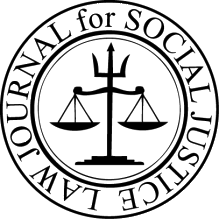Volume thirteen begins with two articles closely connected to our local Arizona community. First, in A Case for Broadening Arizona’s Approach to Compassionate Release, Dr. Sarah Cooper critically examines Arizona’s compassionate release procedures in prisons. With Arizona grappling with extremely high incarceration rates, Dr. Cooper provides a critical analysis of current procedures in the state and potential alternatives. Dr. Cooper concludes by advocating and providing for broader compassionate release legislative reform in Arizona.
Second, in Violating the Inviolate, Mikel Steinfeld, dissects the constitutionality of the Arizona Legislature authorizing trial judges to decide the existence of prior convictions, taking the decision away from juries. Steinfeld explores the history of Arizona’s recidivism scheme and analyzes the Arizona Constitution to argue the court’s error of approving judicial fact-finding of prior convictions. Steinfeld concludes by advocating for the court to revisit the issue to hold the Arizona Constitution protects a defendant’s right for a jury to find for prior convictions, invalidating current Arizona law.
Next, Lauren K. Garretson, in Giving Immigrants the Cold Shoulder: Potential Legal Challenges and Policy Considerations for Trump’s Inadmissibility on Public Charge Grounds Rule,discusses the legal challenges to the Trump Administration’s new Inadmissibility on Public Charge Grounds rule. Garretson analyzes the evolution of the Public Charge Doctrine in the United States. Garretson then explores the Trump Administration’s new version of the rule and discusses the detrimental effects the rule will have on lawfully present non-citizens, American employers of immigrants, and immigrant communities.
Last, Michael L. Perlin, Esq., in “Deceived Me into Thinking/I Had Something to Protect:” A Therapeutic Jurisprudence Analysis of When Multiple Experts are Necessary in Cases in which Fact-Finders Rely on Heuristic Reasoning and “Ordinary Common Sense,” explores the disconnect between the “ordinary common sense” of fact-finders and the scientific evidence that can inform decisions in cases. Perlin argues by providing two experts in situations where common-sense is flawed, legal systems can correct this erroneous behavior to create a fairer and just system.
The Law Journal for Social Justice would like to thank the authors in this volume. Their work is important, and we appreciate the opportunity to publish and share it. Additionally, we’d like to thank all who contributed in putting this volume together. We hope you enjoy the Law Journal for Social Justice’s volume thirteen.
Ashley E. Fitzgibbons
Editor-in-Chief
2019-2020
